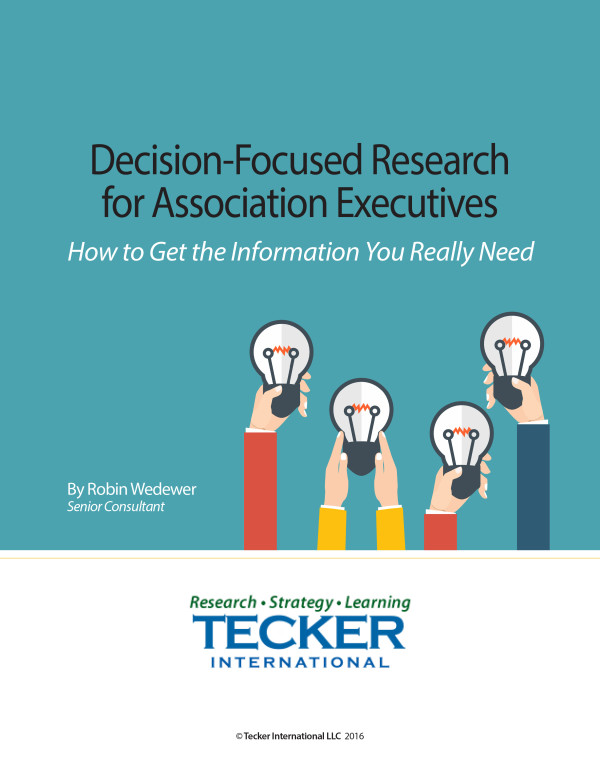There has been a lot of discussion of late in this space, Association Now Daily, and other places about the membership model. Recently Mark Golden raised some good questions about its evolution into the future, Mark Athitakis pointed us to some implications of that evolution, and Chris Mahaffey reminded of us of some still valuable research he undertook about tax exempt status and performance several years ago. Bruce Butterfield makes a good case for testing basic assumptions. Michael LoBue opines many of the changes being suggested are really modifications of pricing strategy and not a fundamental redesign.
We observe that this conversation reappears about every 10 years. Each time pundits focused on nonprofits declare that things are very different than they have ever been before (they are always right) and, therefore, new “models” are required (they are sometimes right).
But, as Jim Collins and many others have observed, some things in the “core” don’t change. If they do, the enterprise becomes something else. The core of what makes associations unique is voluntary participation in the sustained pursuit of common good over time. Membership will continue to be an important artifact of community for those associations whose mission and envisioned future are best served by having members. Membership is a means for people who want to be associated with something that is important to them to have a tangible way of declaring their support. That’s likely to be most associations, at least until evolution radically alters basic human behavior.
There are now many ways to create the opportunity for people to engage in work that matters to them that do not necessarily require official membership. Many associations whose members benefit from participation of nonmembers have already found some vehicle for encouraging it. This is especially true in associations that recognize their competitive advantage is that they are designed to pursue valuable, high level, and important goals that require consistent and organized attention over time.
Our race for relevance is a marathon and not a sprint. We believe that relevance is a temporary state in any field characterized by change. We think that a process for continuous focusing of commitments, content and community is necessary to sustain value. Membership is one of several components of the infrastructure of an association where there are choices to be made. We think the choice of membership/stakeholder model is best based on clarity and consensus about what the organization is trying to accomplish.
An effective process for strategic thinking and planning provides a way for a cause related community to determine what it wants to accomplish, what work will be required, and then how best to organize. Many nonprofit foundations, charities and service organizations operate with a participation model that does not require membership. It works for them because of the nature of their mission – they are basically about service to others. Associations, on the other hand, are usually about service to/with each other.
Stakeholder, governance, program, workforce and financial strategy have always been the means to the ends. We find that associations that abandon a membership model tend to be lured into the vendor of services mentality – exactly the condition that Mark Golden, Jeffery Caufaude, I and others have warned could be a mistake for many associations. We have observed that a number of associations have concluded, after informed examination, that such a change would be an overreaction. An alluring but inappropriate response to twin temporary dilemmas:
- a psycho-social phenomenon of disengagement and
- the compression of resources for discretionary investment.
The disengagement of members is not being experienced by associations that are:
- working on the things that matter to their mission and members,
- demonstrate that the work is making a positive difference, and
- provide enjoyable opportunities for participation.
This is considered good news by the current generation of younger members. Unlike some of their demographic predecessors, the millennials (adults now in their twenties and thirties) are not looking for others to tell them what they need and sell them instant solution in a box. They are less concerned about issues of power and control and are more attuned to outcomes. More than any previous generation since WWII, as a cohort the millennials common school experience has been accountability for results produced by team work supported by technology. As the kind of a generalization that demographers and social historians make, the millennials are observed as tending to exhibit a penchant for team work and just causes, an appreciation of alternatives and choices, an attraction to gregarious gatherings, equal comfort with virtual space and face-to-face encounters as different facets of the same connective experience, and enjoyment of opportunities to co-create solutions to things that matter to them.
The vast majority of economic experts think that the doldrums that succeeded the great recession are showing signs of giving way to an era of more opportunity. We believe associations can reasonably expect increased willingness on the part of individuals, companies, and institutions to make investments in self-help communities that demonstrate a record of accomplishment and an enjoyable culture.
If these observations are correct and an unexpected turn of events does not alter the trajectory, we believe association membership should expect a renaissance. Especially in those organizations whose missions are best achieved through sustained voluntary collective action over time. Marty McFly and the Professor would be gratified since that’s exactly what most legitimate membership organizations were designed to accomplish.
Read Similar Blog Posts
Read more posts about Strategy

